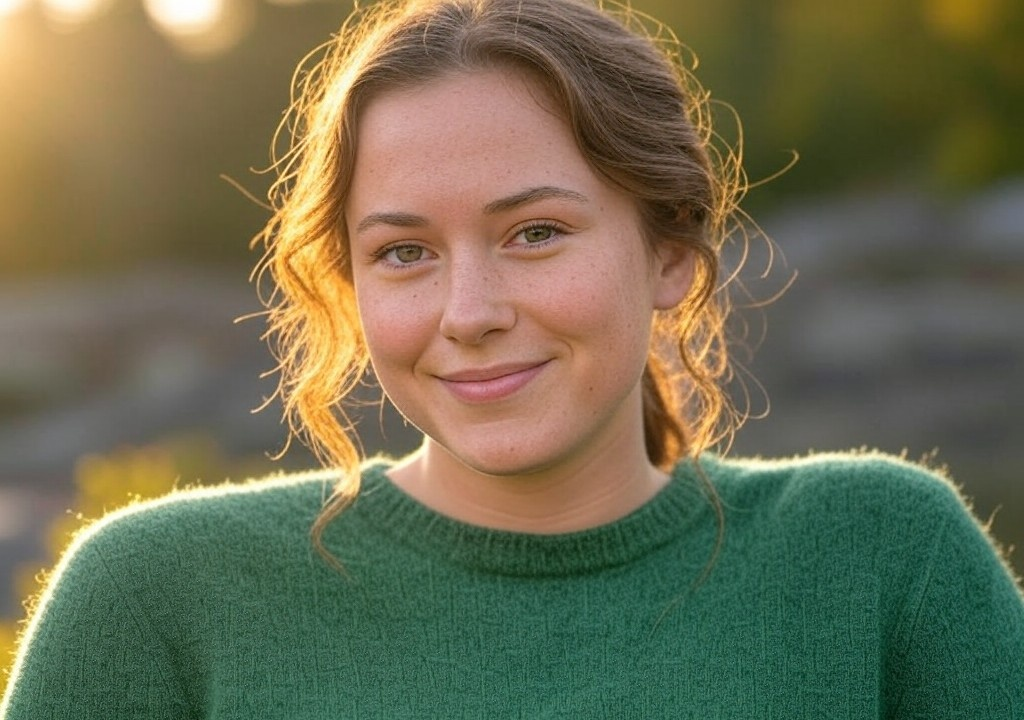I was seven years old when I first heard it, a family legend whispered over steaming bowls of clam chowder: “We descend from a long line of explorers.” My parents said it with the kind of quiet pride reserved for facts you never doubt, like the way the sun sets over Cadillac Mountain or how no pancake ever tastes better than one cooked on a cast iron griddle. According to the myth, our ancestor—one Valentine Woodcroft—was an English sea captain who ventured to the edge of the known world, charting coastlines with a compass and grit. “Adventure runs in our blood,” my dad said, serving himself a second helping.
As a kid, I didn’t question it. Why would I? The story matched everything about my small, salt-washed life. Our home near the shores of Bar Harbor was filled with treasures of the sea—driftwood sculptures, glass floats that caught and bent the light like magic. My mom’s B&B was even named “The Mariner’s Rest,” and, if I’m honest, I thought that had to count as some kind of proof. I imagined Valentine staring out at endless horizons, fearless and determined, his wild spirit somehow passed down to me. On solo hikes in Acadia, I felt his courage stirring—or so I thought.
It wasn’t until I was in my late twenties, working on a book and waist-deep in genealogical research, that I decided to dig deeper into the Woodcroft lineage. What I uncovered wasn’t a seafaring hero—but a candlemaker from Surrey with no maritime history whatsoever. The only thing he likely navigated was the route between home and the shop, and I’d bet his most adventurous moments involved debating wick sizes. My family’s “explorer bloodline” was, as it turns out, entirely made up—a fabrication probably born of some great-uncle’s imaginative storytelling.
At first, I laughed at the absurdity of it all. But the more I unpacked it, the more I saw how much this myth had shaped me—how it had affected the way I understood myself, my choices, even my relationships. I started asking: What other “truths” about life and love do we carry like Valentine Woodcroft’s imaginary spyglass? And what happens when we decide to throw those myths overboard?
The Myths That Build Us
Every family has stories they tell like gospel. Maybe you grew up believing your grandparents’ “accidental” meeting was fate woven into the stars. Or maybe you’re the small-town kid whose family swore hard work always beats talent (even though Becky with the lacrosse scholarship proved otherwise). These myths shape who we are before we ever have the chance to question their validity.
In my case, the myth of the intrepid Woodcrofts gave me permission to embrace adventure—and thank goodness for that. It’s why I chose to study environmental science, to travel solo abroad, to pick a less-than-practical career as a writer. But it also created a narrative that didn’t leave much room for vulnerability. I believed bravery meant always venturing forward, blazing trails instead of staying still to mend a broken heart or admitting when I didn’t know where I was going.
Think about it. We’re all a little guilty of buying into family myths, especially when it comes to love. Some examples?
- The "Relationships Should Be Effortless" Tale: You watched your parents hold hands for 30 years and thought love would naturally arrive gift-wrapped. (Spoiler: Love tends to show up late, messy, and in need of emotional unpacking.)
- The "Opposites Attract" Doctrine: Hollywood told you the artsy, moody musician would perfectly balance out your spreadsheet-loving, Type A personality. (Meanwhile, the reality looks a lot more like you arguing about who left their socks in the living room.)
- The Savior Complex Narrative: Growing up, you learned that the right partner could fix everything—your insecurities, your conflicts, even your finances—when, truly, those things take a you-first approach.
When Family Myths Meet Dating Expectations
Let me paint a picture: It’s my early 20s, and I’m dating a guy who might as well be a human embodiment of the Valentine Woodcroft myth. He’s a literal sailor, someone who spent his summers navigating schooners up and down the New England coast. (Cue me swooning because, wow, talk about living the “explorer legacy.”) But while he seemed perfect on paper, the reality was… stormy. We didn’t align on small-but-important things, like how we wanted to spend our free time or what counted as a “compromise.” Still, I hung on, convinced I was fulfilling some destined narrative—that someone like me, the supposed descendant of adventurers, couldn’t just date an accountant from Bangor.
Looking back, I know the problem wasn’t him; it was me clinging to an idea of who I thought I should be with. The family myth had skewed my vision. I’d bought into the story so completely that when someone didn’t fit inside that illusion, I overlooked the potential for genuine connection.
Navigating Your Own Myths
So, what happens when you realize the maps you’ve been handed aren’t entirely accurate? When you catch yourself chasing family mythology instead of facing your real wants and needs head-on? Here are a few ways to course-correct:
-
Question the Narrative:
Start by identifying the stories you were raised on—whether it’s a family legend or a lesson presumed to be universal truths about life and love. Ask yourself if it truly serves you. “All good relationships require sacrifice” might be wisdom… or it might be an excuse to ignore major red flags. -
Reframe Your Values:
Maybe hard work doesn’t always beat talent—but being consistent trumps both. Maybe “opposites attract” is catchy, but compatibility makes for better Sunday mornings. Give yourself permission to reshape these values for your own life. -
Write a New Story:
When I let go of the fearless explorer story, I didn’t lose my sense of adventure. Instead, I redefined bravery as something quieter: being vulnerable, asking for help, staying when things felt uncomfortable but real. Adventure isn’t always about charting seas—it’s about diving into the uncharted waters of intimacy.
The Heart of the Matter
Once I let the Valentine Woodcroft myth go, I realized something freeing: I didn’t need to be tied to some imagined legacy to live boldly. The people we love—the partners we choose, the friends and family who show up for us—they’re not here to fit into some pre-drawn map. Instead, they’re co-captains, helping us steer our way toward meaning and joy.
So, let the myths unravel a little. You might just discover that letting go of what you thought you needed makes space for the life—and love—you truly want. Sometimes, the bravest thing you can do is rewrite the story.




















